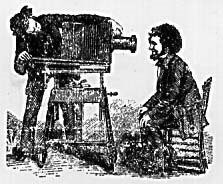1. In both texts, it is apparent that race is central to cultural studies and according to Sardar and Van Loon, "is a socially constructed concept" and Munns and Rajan state "race pervades every aspect of culture" (Munns & Rajan 385). They state how the term "Race" developed primarily after the Renaissance and "after the industrialization of Europe and the process of colonization" (Sardar and Van Loon 122). Both texts state that the discourse on race has to do with politics and power: "post-colonial critics to challenge power relationships between the colonized and the colonizer" (383), many times including the works of the oppressed like Frederick Douglass.
In Introducing Cultural Studies, they introduce terms like multiculuralism, describing different races living in peace as one. The problem that both texts face in analyzing race and racism is that it views other cultures from a western tradition. According to the texts, the most important humanistic strategy is to view the "'other's' voice on co-equal terms" (385). It emphasizes the "civilized" as western culture. Sardar and van loon talk about Diaspora and how minority communities live in exile because of economic and politic reasons, in particular the jews or the native americans in America.
2. Keywords: "Other"
The "Other" in New keywords is "integrally related to that of identity" (249) and is the "non-self and non-us". It is associated with racist and xenophobic reactions. It has been a main issue in postcolonial studies in which "The West" is in composition with an imaginary "the East".
3. In the wikipedia article Race (classification of human beings) it talks about the history of the idea of race, the debate on whether or not it is a scientific or socially constructed ideal, how it is used in politics and census, and how it varies from country to country. http://en.wikipedia.org/wiki/Race_%28classification_of_human_beings%29
Another article I wanted to look into was the Thomas Carlyle "Occasional Discourse on the Nigger Question" in which the author opposes the idea of aboloshing slavery and is one of the well-known works showing early racism and discrimination.
http://mac110.assumption.edu/aas/Manuscripts/carlyle.html
announcements
This blog was created by and for students in an Introduction to Cultural Studies class at the University of Washington. Through an investigation of urban experience and representation--in theory, in graphic novels and in our own "readings" of Seattle's University District--we considered the formation and history of cultural studies as an (anti)discipline, with a special emphasis on the questions, "What does cultural studies do, and how do you do cultural studies?"
If you'd like to know more about the class, the blog or our U-District artifact project, please contact Gabrielle Dean: gnodean@u.washington.edu.
If you'd like to know more about the class, the blog or our U-District artifact project, please contact Gabrielle Dean: gnodean@u.washington.edu.
Subscribe to:
Post Comments (Atom)
blog archive
-
▼
2008
(92)
-
▼
April
(35)
- Identity in City of Glass
- History of Origins: Race Studies
- History of Origins: Gender Studies
- History of Origins: Gender Studies
- History of Origins: America
- History of Origins: Race Studies
- History of Origins: Gender Studies
- History of Origins: Race Studies
- History of Origins: Race Studies
- History of Origins: Media and Science
- History of Origins: Media and Science
- History of Origins: Gender Studies
- History of Origins: Media and Science
- History of Origins: European Theory
- History of Origins: European Theory
- History of Origins: European Theory
- History of Origins: European Theory
- History of Origins: European Theory
- History of Origins: America
- History of Origins: European Theory
- History of Origins: America
- History of Orgins: European Theory
- History of Origins: European Theory
- History of Origins: Great Britain
- History of Origins: Great Britain
- Cultural Studies in Britain
- Cultural Studies in Britain
- History of Origins: General
- History of Origins: General
- History of Origins: General
- History of Origins: General
- "Orientalism"
- Are You an Author?
- "Paris, Capital of the 19th Century"
- READING: A WEB MODEL
-
▼
April
(35)

No comments:
Post a Comment